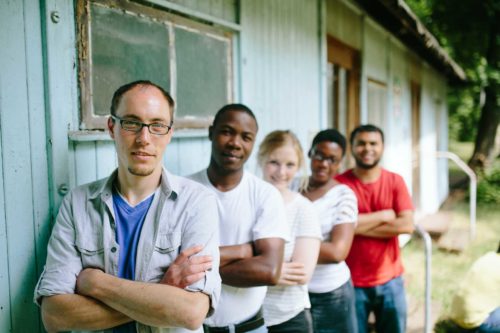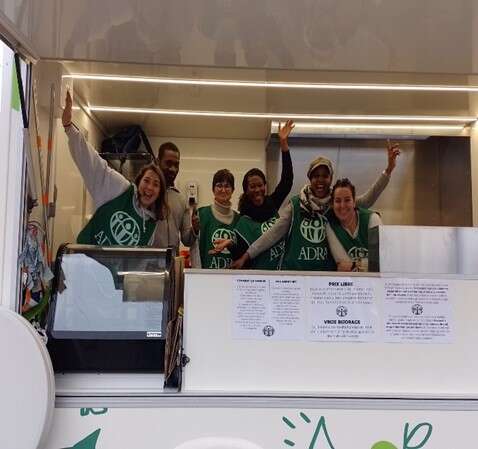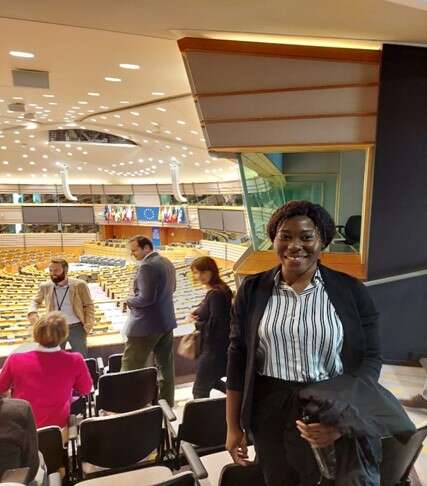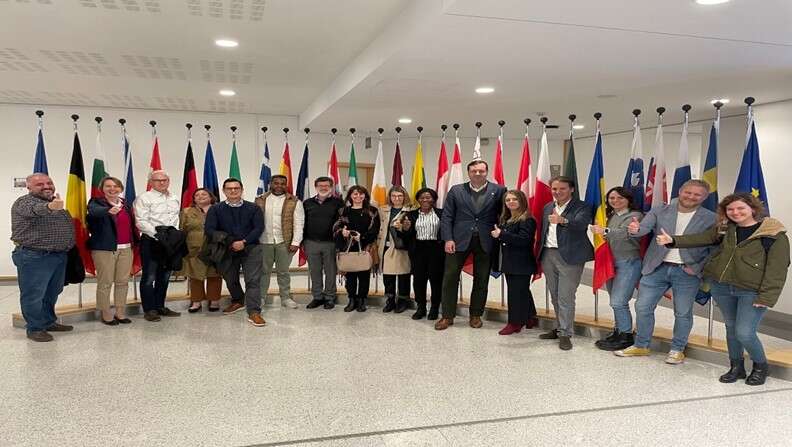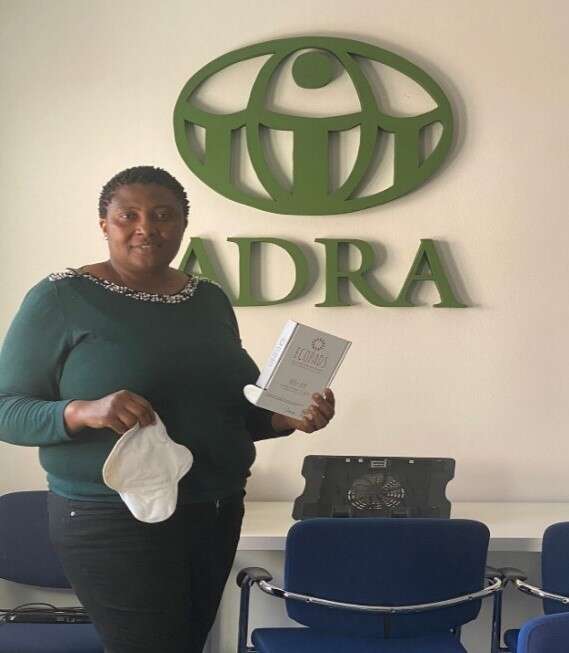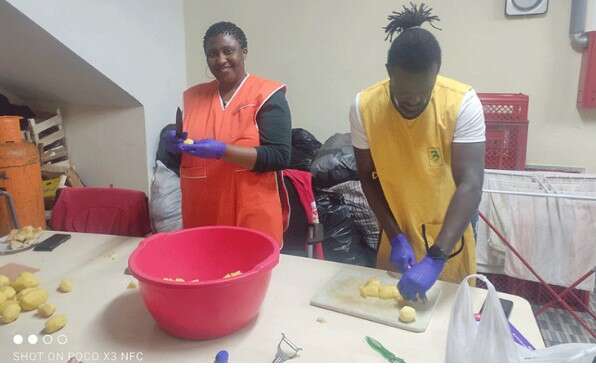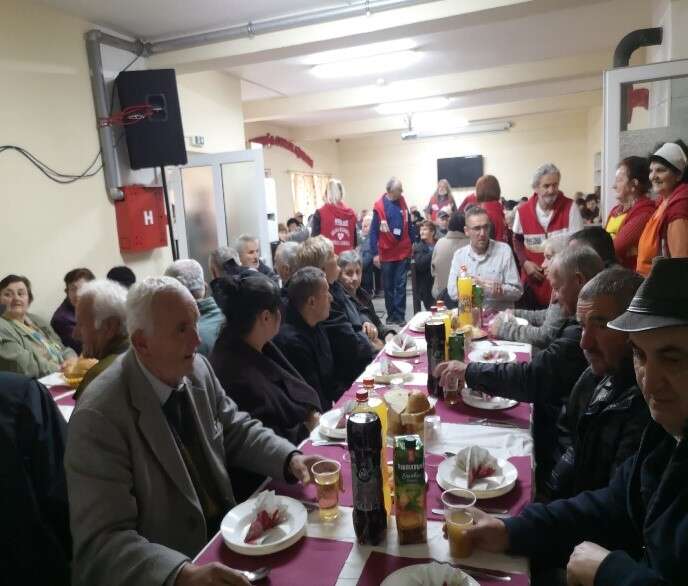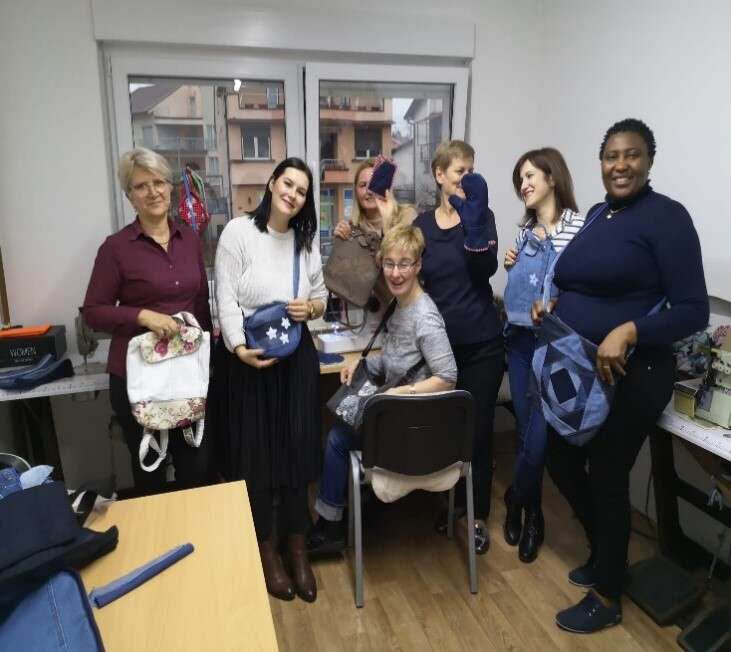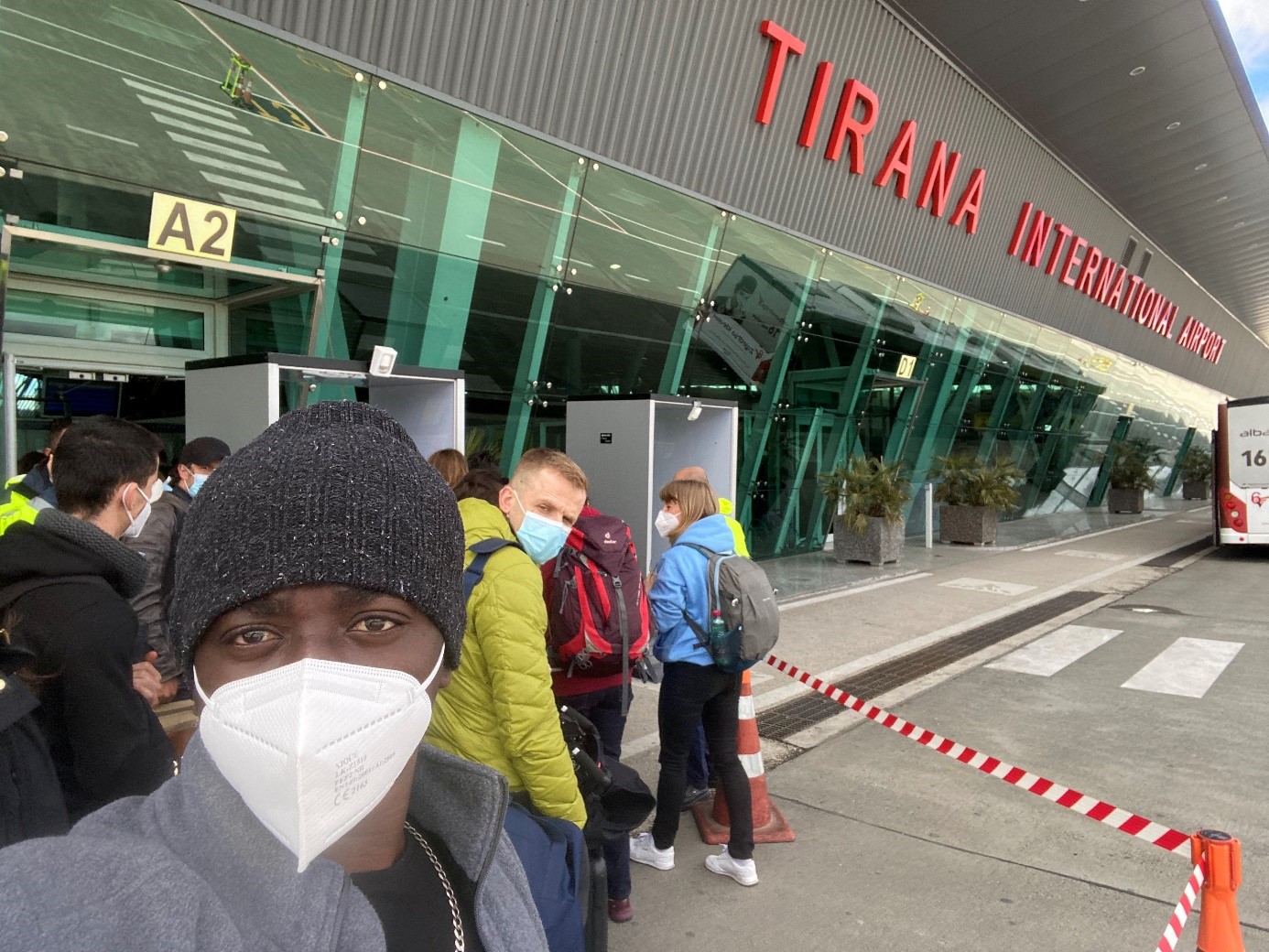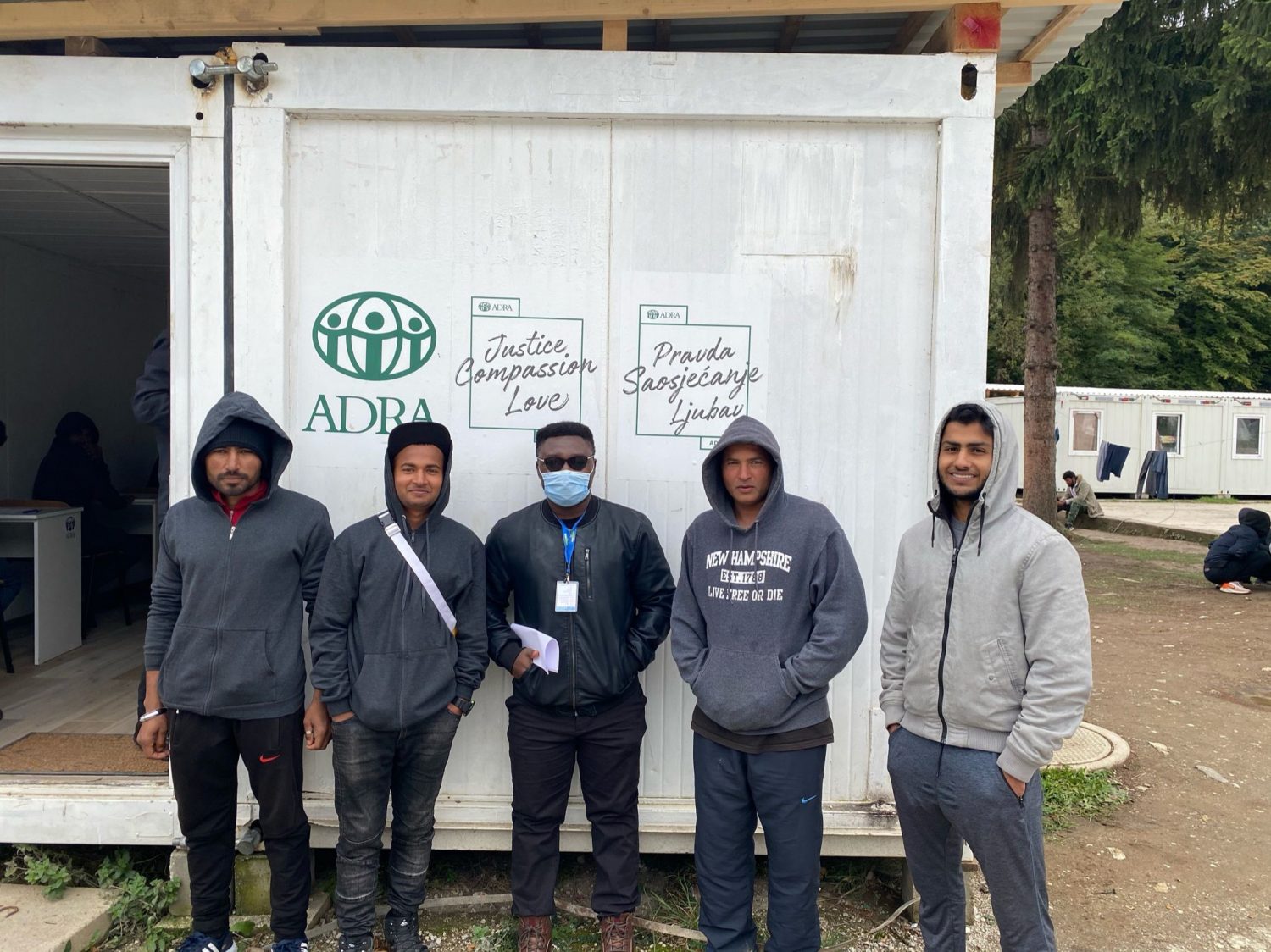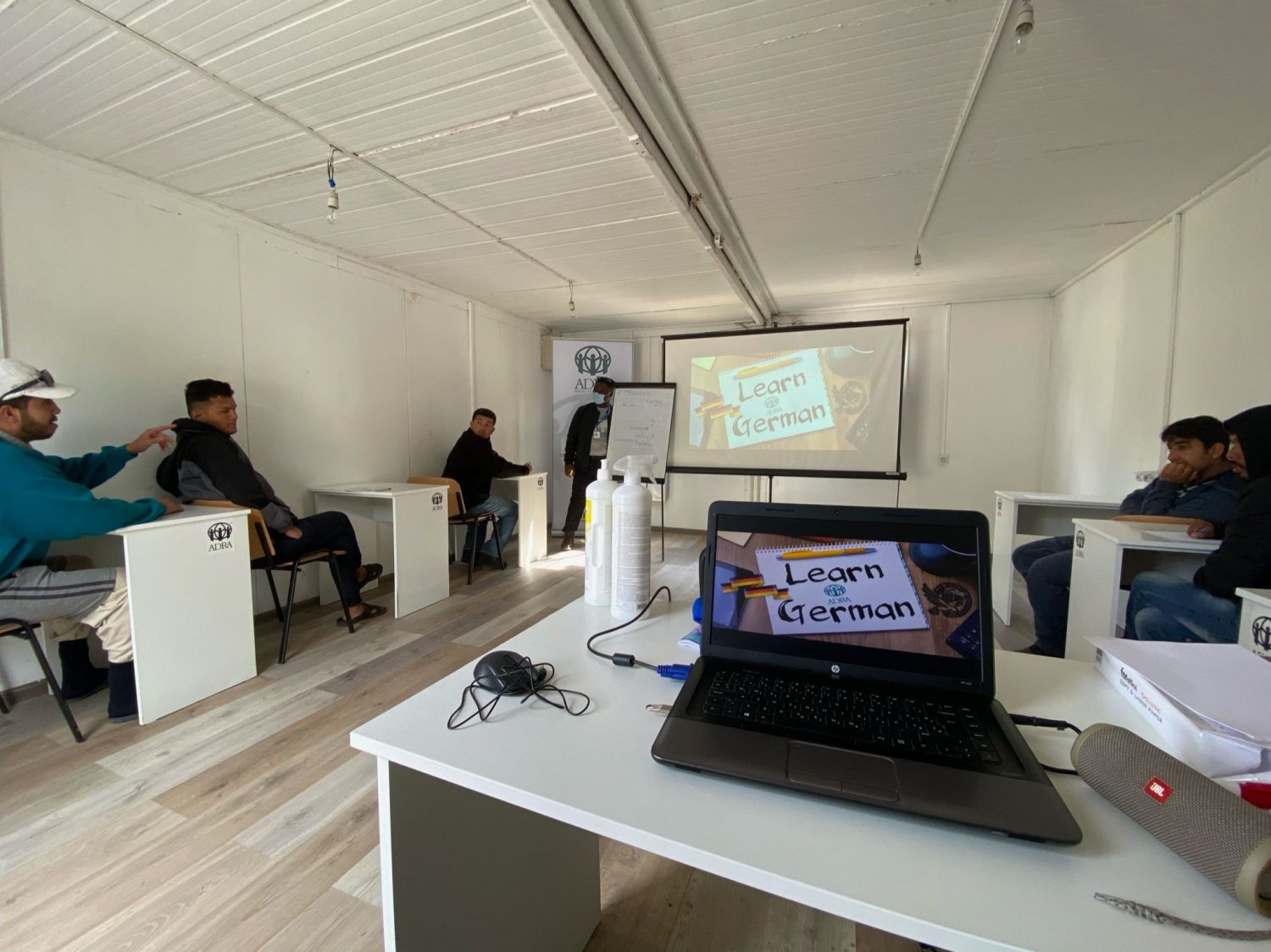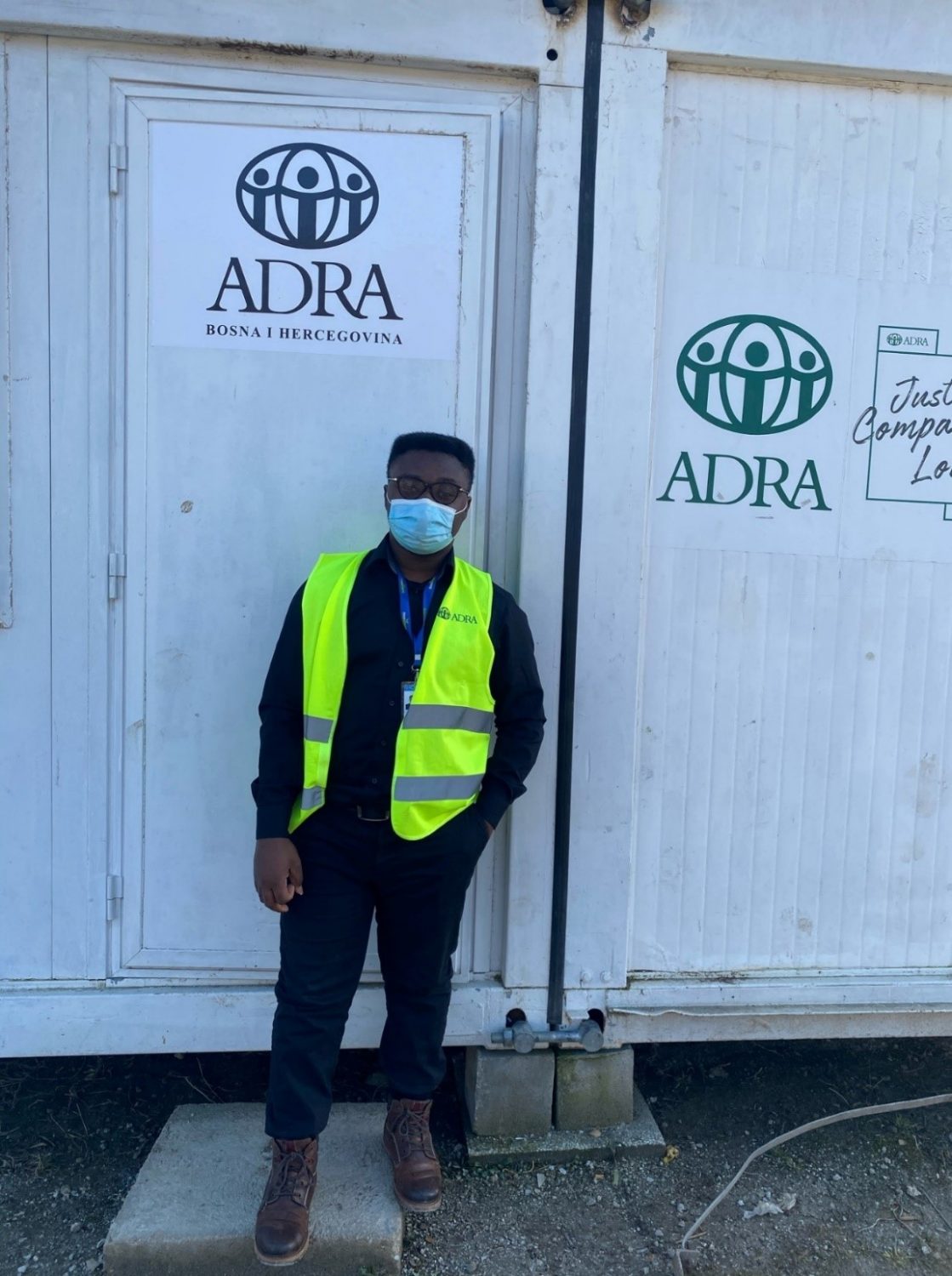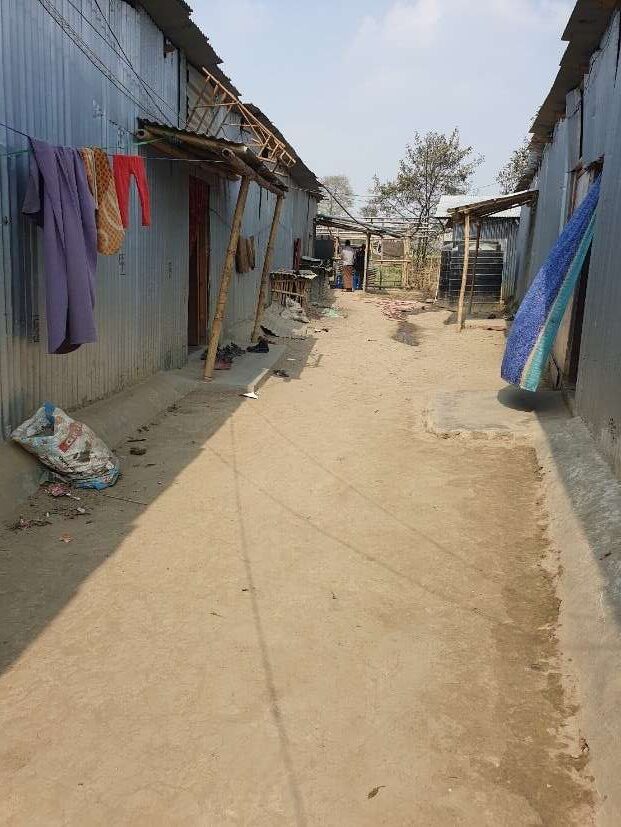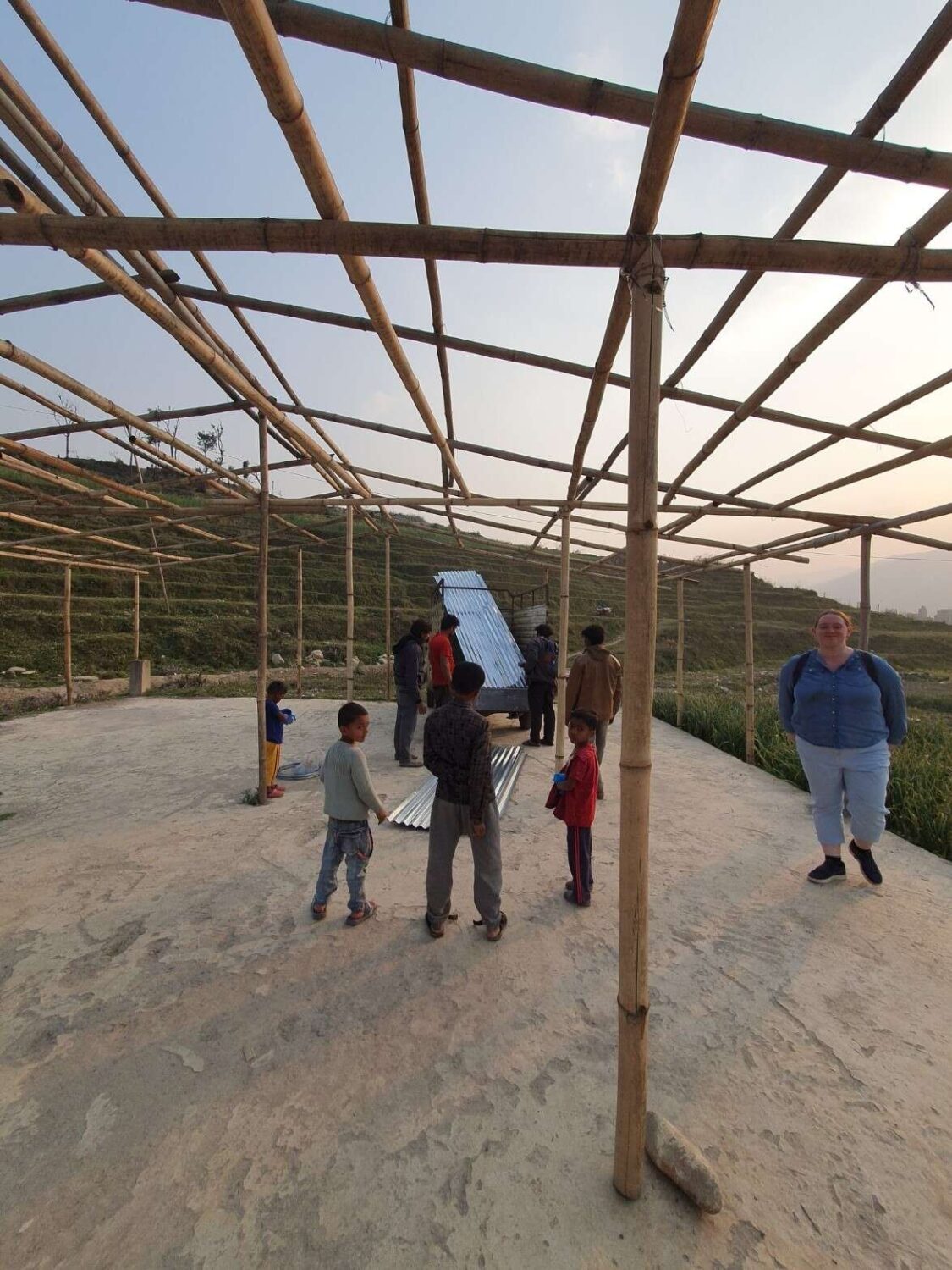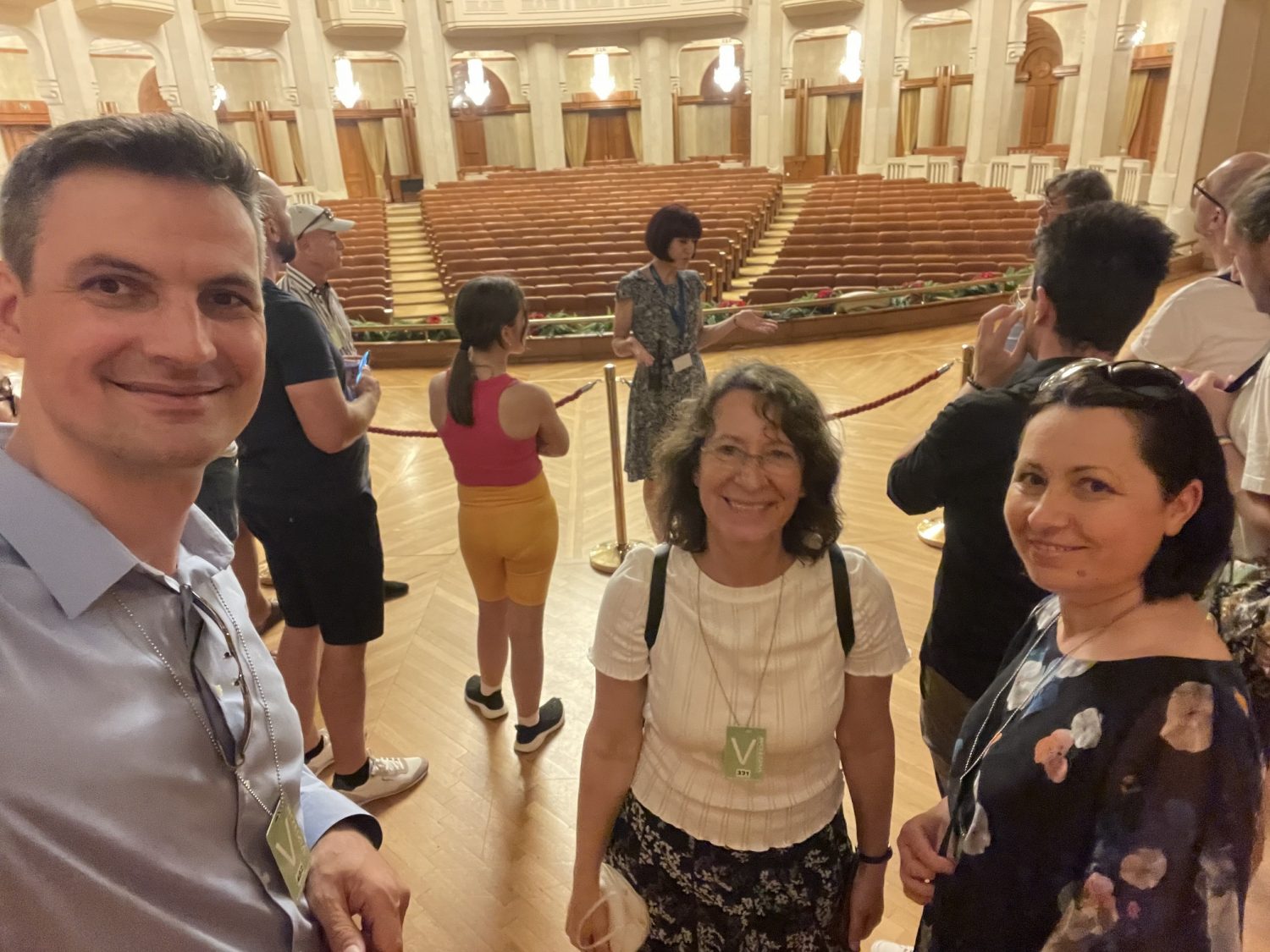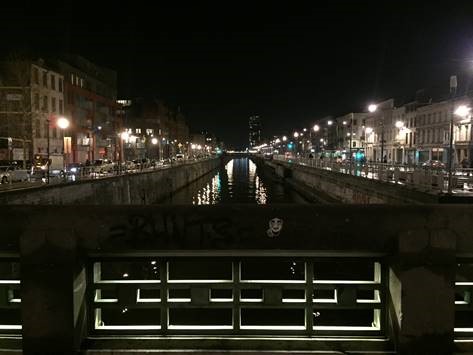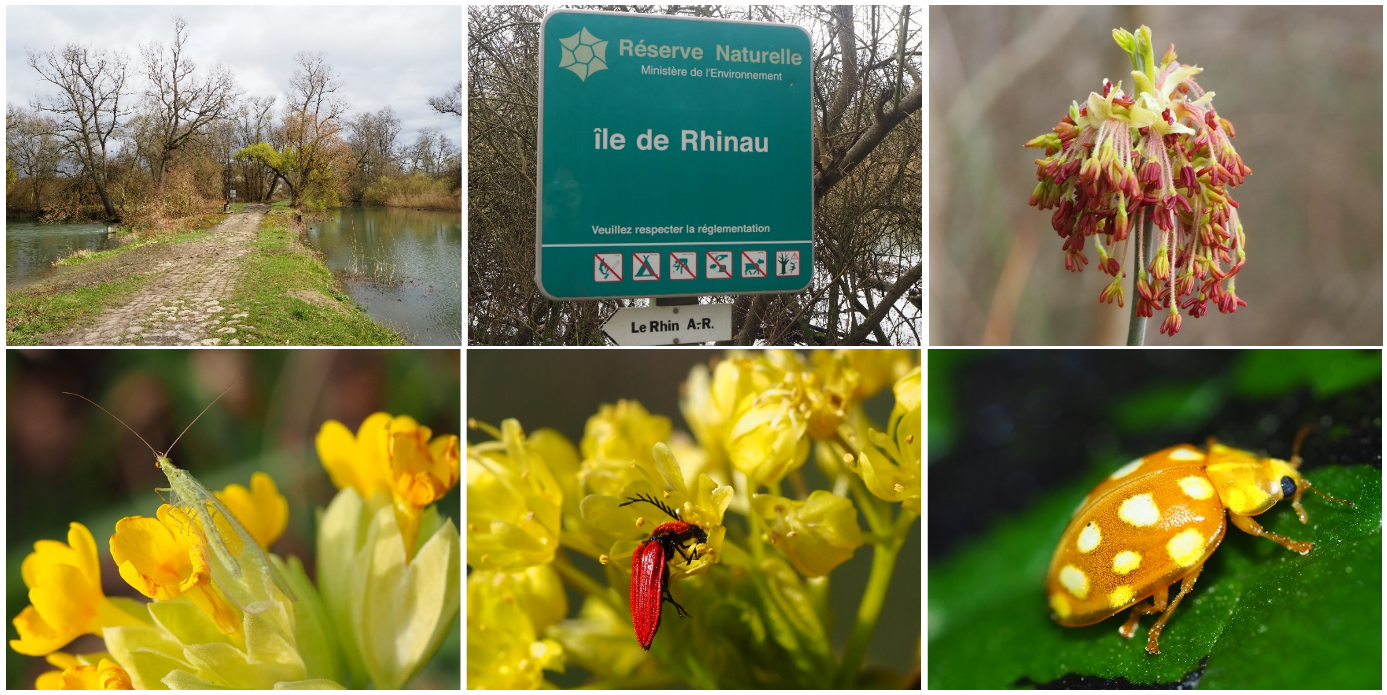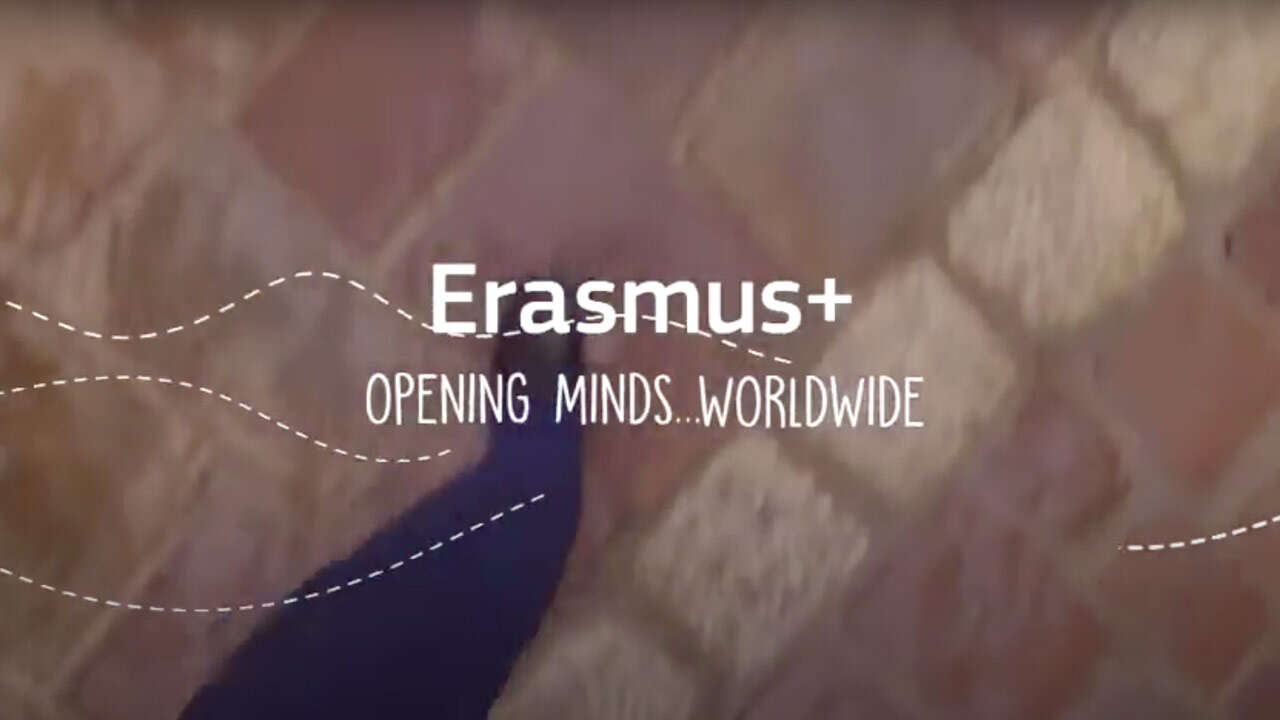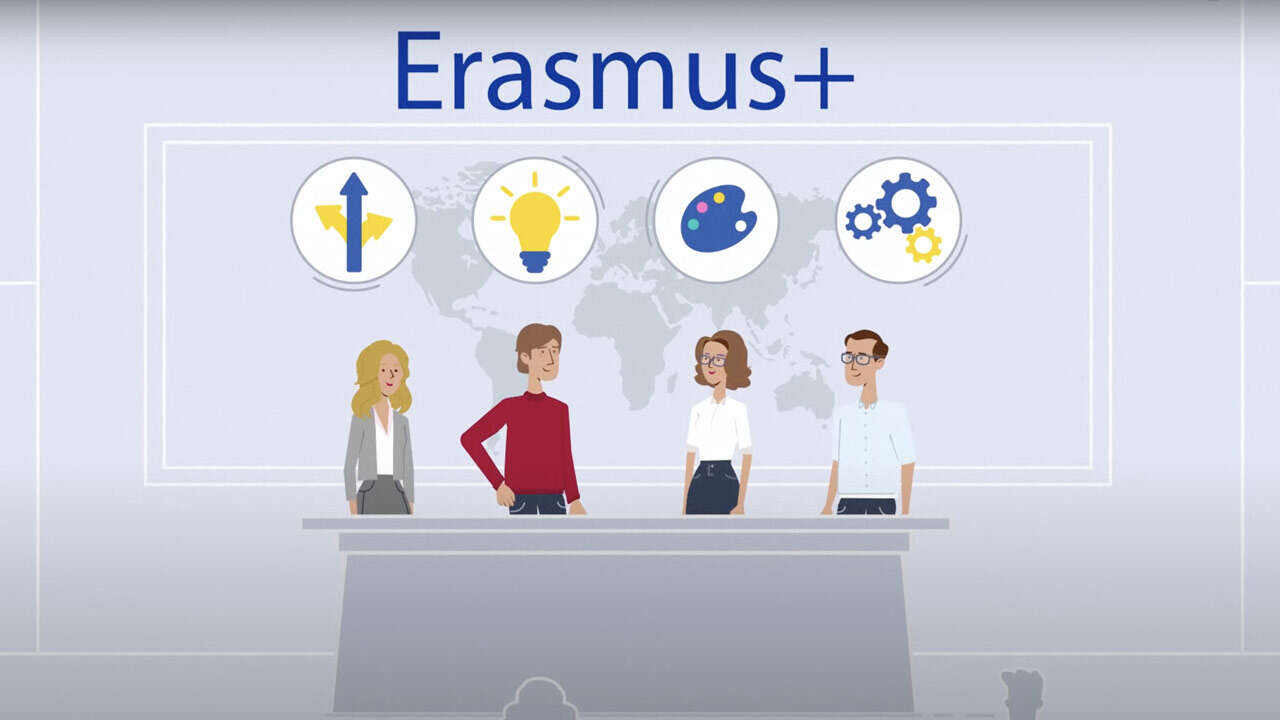Erasmus+
Das europäische Austauschprogramm Erasmus (European Community Action Scheme for the Mobility of University Students) ist ein 1987 durch die Europäische Union entwickeltes Austauschprogramm, das Studierenden die Möglichkeit gibt, ein oder zwei Semester im Ausland zu studieren, basierend auf bilateralen Verträgen zwischen der Heimathochschule und einer Vielzahl von Partner-/Gast-Hochschulen. In diesem Rahmen erbrachte Studienleistungen werden von den Partner-Hochschulen anerkannt. Die Anerkennung der Studienleistungen orientiert sich an den Vorgaben des „European Credit Transfer and Accumulation System“ (ECTS), der jeweiligen Prüfungsordnung, sowie der Lissabon-Konvention. Wichtige Instrumente für die Anerkennung sind eine Studienvereinbarung und die Bescheinigung über erbrachte Studienleistungen (Transcript of Records). Informationen zum Benotungssystem finden Sie in der Prüfungsordnung des jeweiligen Studienganges. Falls keine Anerkennung gewährt wird, können Beschwerden beim Büro für Akademische und Studentische Angelegenheiten eingereicht werden.
Hinweis für einen Studienaufenthalt in Großbritannien:
Aufgrund des Brexit sind deutsche Studenten die einen Studienaufenthalt in Großbritannien planen gebeten, sich auf der Webseite der deutschen Auslandsvertretung in Großbritannien über die aufenthaltsrechtlichen Fragen zu informieren.
Studierendenmobilität
Outgoing
- Anerkennung von Studienleistungen - ECTS
- Studienvereinbarung
- Transcript of Records
- Checkliste
- Finanzierung
Incoming
- Bewerbung und Zulassung (Transcript of Records)
- Modulhandbücher
B.A. Soziale Arbeit
B.A. Theologie
M.A. Counseling
M.A. Musiktherapie
M.A. Theologie
Studiengänge in englischer Sprache:
M.A. International Social Sciences (Development Studies)
M.A. Theological Studies
- Prüfungsordnungen
B.A. Soziale Arbeit
B.A. Theologie
M.A. Counseling
M.A. Musiktherapie
M.A. Theologie
M.A. International Social Sciences (Development Studies)
M.A. Theological Studies
Praktika
- Erasmus-Praktika Sachsen-Anhalt
- Praktikumsplätze
- Erfahrungsberichte anderer Hochschulen in Sachsen-Anhalt
- Stipendien
Erfahrungsberichte von Studierenden aus Friedensau:
 My Internship with ADRA Europe in Brussels by Abla Essenam Odette Apedoh
My Internship with ADRA Europe in Brussels by Abla Essenam Odette Apedoh
Based on my studies in in International Social Sciences, I obtained a six-month internship with ADRA EUROPE, the European Regional Office, located in Brussels, Belgium.
ADRA EUROPE is a faith based organization. It is also a Regional Office of the ADRA network. The network constitutes of a global humanitarian agency which delivers relief and development to individuals in more than 118 countries. The ADRA EUROPE office supports 30 ADRA European offices in developing their capacity through partnership, funding and training, to promote the well-being of the communities in whom they work. It also serves as a point of contact between government institutions, such as the European Commission and the ADRA offices within Europe.
During my time at this institution, I was able to contribute to discussions related to development and social justice and to assist the organization through research in their initiative to better their emergency response worldwide. I also assisted individuals such as my supervisor and other colleagues in their day-to-day activities, such as reporting and organizing seminars.
Indeed, during my time with ADRA EUROPE, I learned a lot, particularly about governance, cooperation among development institutions, advocacy for social justice, emergency humanitarian response, trends in the NGO sector, the impact of civil society, leadership, fundraising or positive organizational culture.
I had a really good learning experience that exposed me to a new world of work, helping me to relate the theoretical themes to the practical situation on the ground, and made me discover my hidden potential, which I will further develop for my future carrier.
 My Internship at ADRA Romania by Joyce Dzonyrah
My Internship at ADRA Romania by Joyce Dzonyrah
MY INTERNSHIP AT ADRA ROMANIA BY JOYCE DZONYRAH
I am Joyce Dzonyrah and studying Master of Arts in International Social Sciences at Friedensau Adventist University. I had a 3-month internship with ADRA Romania, particularly with their CASA ADRA project which shelters victims of domestic violence. I started from the 1st of April to the 29th of June 2023. This internship was fully funded by Erasmus.
This step came up when there was an opening position for an internship at ADRA Romania which my university publicized. I therefore showed interest in it and that is where the process started. This process was very smooth due to the immense support from all the stakeholders involved which included my university, the ADRA Romania institution, and Erasmus.
I contacted my supervisor from the host institution (ADRA Romania) which initiated communication even before moving to the host city. This communication with the supervisor helped in developing a rapport that extended further to the Human Resource Person of the institution. I got to learn more about the institution before getting there so I basically knew the nature of the operations of the project. They even helped in securing accommodation for me which took a huge burden I was worried about. I also started research online about Romania’s cities, security, and other things to note as a foreigner. One of my worries was about the Ukraine-Russia war as Romania was close to the situation so I kind of felt insecure. However, further talks with the Human Resources person and the supervisor removed this worry and fear.
ADRA Romania, the Adventist Agency for Development, Restoration, and Aid, has been actively engaged in the country since 1990, undertaking various development initiatives aimed at benefiting the entire population, irrespective of their religious affiliation, ethnic origin, or gender. ADRA Romania directs its efforts towards five primary areas, namely economic growth, primary healthcare, disaster relief, basic education, and the prevention of family violence (ADRA Romania, 2023).
The "Emergency Reception Centre for Victims of Family Violence - CASA ADRA House" of ADRA Romania where I was placed has been in operation since 2009. This project endeavors to facilitate the reintegration of domestic violence victims into society through the provision of various forms of assistance, including shelter, social counseling, psychological counseling, emergency medical aid, food, and referrals to legal professionals.
I actively participated in multiple responsibilities associated with the CASA ADRA house. These tasks encompassed conducting preliminary assessments of survivors, interviewing individuals, engaging in the initial evaluation process for new shelter recipients, observing and acquiring knowledge about the assessment methods utilized to ascertain the distinct needs and support prerequisites of each individual.
I was engaged in collaborative efforts with the social worker at the shelter, focusing on a range of activities designed to empower and provide assistance to the residents. This involvement includes active participation in group discussions, workshops, and support sessions specifically tailored for victims of domestic violence. Additionally, I contributed to the creation and execution of social programs and initiatives.
I also participated in discussions with the psychologist at the center in order to acquire a deeper understanding of the distinct dimensions of domestic violence and its psychological ramifications on individuals affected by it. Additionally, I sought to familiarise myself with the psychological assistance and counseling services provided to survivors.
I contributed to the strategic development and implementation of leisure pursuits for the inhabitants of the shelter, specifically focusing on the mothers and children residing within its premises. I strategically devised and executed various recreational activities, including games, art projects, and other interactive endeavors, with the aim of cultivating a favorable and pleasurable environment. I also engaged in activities such as accompanying victims on walks and visits to different locations, offering support and companionship, and taking part in recreational outings and educational excursions.
My primary objective encompassed the acquisition of knowledge pertaining to the legal framework surrounding domestic violence in Romania, as well as a comprehensive understanding of the diverse manifestations of domestic violence and its associated consequences. Additionally, I aimed to familiarise myself with the distinctive characteristics and requirements of individuals who have experienced domestic violence.
I provided assistance to the supervisor in the preparation of the "Child Flight" fundraising campaign for the shelter via assisting in the creation of promotional materials aimed at attracting potential sponsors and partners, engaging in proposal writing, and actively participating in discussions to identify impactful language and storytelling techniques for effectively conveying the narratives of ADRA House. This involved utilizing my social media platforms to generate public consciousness regarding this event. This event was aimed at raising funds for the CASA ADRA House.
I actively engaged in a protracted endeavor by making substantial contributions to the conclusive narrative report of a year-long initiative centered on refugees. Within this project, CASA ADRA focused on addressing instances of gender-based violence and provided support in terms of data collection, analysis, and report composition pertaining to the project's activities and outcomes.
This was a better way of applying the classroom work to the field and I realized how extensive project management is and it inculcates the habit of learning across various fields relevant to the project. I am really grateful to Erasmus for sponsoring this goal, helping me to fit well in the international professional and humanitarian field, and also aiding the process for the start of my thesis. This was a great opportunity!
Reference
About ADRA Romania, 2023, Retrieved from https://adra.ro/cine-suntem
 My Internship at ADRA Bosnia by Solange Tangie
My Internship at ADRA Bosnia by Solange Tangie
Hello, my name is Solange and I am a student in the master's program of International Social Science at Friedensau Adventist University, Germany. During my last semester, in which I did an internship as part of my study programme, the covid pandemic disturbed my course. I had to wait for a while and was searching for where to do my internship. I started to feel a bit confused and undecided about my future and overwhelmed by the idea of completing my study and start looking for a job. It was during this period that my lecturer sent an email about an internship opportunity with ADRA Bosnia, precisely in Banja Luka, that can be sponsored by Erasmus.
ADRA Bosnia empowers those who are physically impaired and unemployed by training them and giving them the opportunity to be integrated into the society while improving their livelihood.
During my internship at ADRA Bosnia in Banja Luka, I performed tasks such as collecting data and helping women in the programme to produce goods to sell for earning their livelihood. I worked together with other institutions in the wide network of ADRA Bosnia like “Friendship of Mozaik”. I helped in preparing ingredients to cook food for the elderly and less privileged ones. I also helped in sorting out donations to be distributed to them on a specific day.
Overall, my internship in Banja Luka was by far the most challenging experience of my life, but also the most rewarding which I am grateful for. Within the internship period, I completed all the work tasks assigned to me.
ADRA Banja Luka has a very small office. One of the aspects I liked the most from this experience was the familiar and friendly atmosphere I found every day at work. All my colleagues always cared about the well-being of everyone at the office, their workload, and support, I had never felt I was asking "wrong questions" or that I was lacking support and guidance. My supervisor always took her time to explain to me every step of my tasks and their contexts so that I could always have a general understanding of what I was doing. Furthermore, everyone always tried to make sure I was getting the best out of this experience and know the local contexts and especially its traditional food. Interestingly, everyone was a food lover at the office, and they could not allow me to leave without eating their traditional meal “Cevapi”.
Finally, my experience as an Eramsus intern and especially at ADRA Banja Luka was extremely positive, not only for the professional skills I gained but most importantly for my personal growth. I went through these months enhancing of interpersonal relations skills, self-awareness, and was able to reflect in depth on my future career path. I consider myself very lucky to have had the opportunity to take part in this project at Banja Luka with women with disabilities and unemployment. A big thank you to Friedensau that provided me this opportunity, to the European Commission for providing the funds and to ADRA Banja Luka to host me as part of their team.
 My Internship at ADRA Albania by Duke Adotey Pappoe
My Internship at ADRA Albania by Duke Adotey Pappoe
My internship at the Adventist Relief Agency (ADRA), Albania, from April 2021 to January 2022 exposed me to many things in life which I had no idea of and thanks to Erasmus for contributing to my easy stay. ADRA is an International Non-Governmental Organization that is involved in the management and provision of disaster relief materials and engages in the provision of social intervention programs in places where these humanitarian services are needed.
The main duties that I was given to perform during my internship time in the agency were in the area of administration, project proposal and report writing. I worked on writing three project proposals such as the Prevention of Sexual Exploitation Abuse (PSEA) project which was sponsored by ADRA International. The other two projects were: Every child Everywhere In school II and the Covid Awareness project. I was also working in all the departments of the agency from time to time to acquaint myself with their work.
One topic that was new to me was the existence of poverty in Europe even though the continent is perceived as economically developed. In my interactions and observations of the people in the country, many stories and issues on economic hardship which are similar to that of Africa were noted, but just like many people like me from the global south, I had the misconception that every part of Europe is economically okay. I meet friends who worked for 12 hours a day for 7 days a week and earned 300 Euros for the month which got me surprised. This brought me back to the topic we always discuss in class and the question of “what constitutes development?” In seeking answers with respect to Albania made me realize that the quality of life, cultural considerations and many other things explain how developed a society is.
My internship lasted for 10 months and I enjoyed every aspect of it and wished it lasted more. I felt there were more things I needed to learn which time and the codvid pandaemic did not allow me to learn. The covid pandemic prevented me to go out more often to interact with project beneficiaries to have the feeling of how the agency`s work impacts their lives and the challenges faced. Also, going out more often could have made me easily learn the Shqip language which was the official language of Albania. Furthermore, the agency has many work activities that I wished to have participated in but I could not due to the limited time I had to spend on my internship. Even though I still have the opportunity to do voluntary work with them online, I would have loved to be there physically to do some of their fieldwork.
Finally, the International Social Science (ISS) study program at Friedensau Adventist University was a good foundation for me to understand the work given to me during my internship. There were many theories that were discussed in class that were easily available to apply during my internship with the agency. I wondered and asked myself if the activities I encountered during my work as an intern would have been easily understood by me without my foundation knowledge in ISS. I came to the conclusion that for an intern to largely understand and analyze works given to him or her during internship, he or she should finish classroom lectures first. Also, having your internship with an organization that mainly deals with social issues widens your knowledge in social sciences better than an organization that only partly does social projects as part of its work.
I will conclude by expressing my appreciation to the Erasmus program for the funds provided for my stay. The funds provided were able to cater for my living expenses and made it easier for me to be accepted my receiving organization as an intern.
 Practical Training Experience Report Bosnia by Prince Agyemang-Badu
Practical Training Experience Report Bosnia by Prince Agyemang-Badu
My name is Prince Agyemang-Badu and I had 6-month practical training with Adventist Development Relief and Agency in Bosnia and Herzegovina between 01.10.2020 to 31.03.2021. The program was fully sponsored by Erasmus.
Before the practical training, I duly conducted a considerable investment of research, reflections, and consultations on the impacts of the training and the situation on the grounds. Influences relating to my future carrier perspectives, development of my interests, the connection between the training institution and my studies, my financial capabilities or sponsorships, language, security, corona situation, and other factors contributed to choosing the training body and the country.
Adventist Development Relief and Agency (ADRA) is a global Faith-Based Organization founded and sponsored by the Seventh-Day Adventist Church. ADRA seeks to deliver relief and development by structuring relevant programs and building capacity for sustainable change to millions of lives in about 118 countries across the globe. ADRA practices decentralization and operates by partnering with local communities, organizations, and various governments; the approach allows effective and quick response on the ground. Among the numerous offices across the globe is ADRA Bosnia. ADRA Bosnia (BIH) believes and works towards “Pravda, Suosjećanje i Ljubav” which means Justice, Love, and Compassion for all humanities regardless of their gender, ethnicity, political affiliation, or religious associations. ADRA BiH operates in two main offices in the country, the Sarajevo and the Banja Luka offices. ADRA BiH has structured, organized, and implemented numerous projects through the years, mainly in Sarajevo and Banja Luka.
I worked with the office in Sarajevo, the capital of Bosnia and Herzegovina. Sarajevo has become a transit point on the western Balkans route. Unregulated migrants use Sarajevo as a rest stop in their journey to regroup, refill their energy, sort for adequate resources being money, friends, and smugglers to continue their journey. With the numbers of unregulated migrants increasing in Sarajevo, the United Nations High Commissioner for Refugees (UNHCR) and the European Union, through International Organization for migration, have created a temporal rest stop for migrants known as the Blažuj temporal acceptance camp. At this camp, ADRA BiH has established a center to train, psych, and educate the migrants. The primary language used during the traineeship was English, but Bosnia and German were used as second language in some cases.
I was assigned many tasks at the migration-center which included the following
- Served as a project assistant at the center. I was in charge in the absence of the Program coordinator.
- Organized and taught German as a Foreign Language.
- Facilitated and trained migrants with computer skills (Microsoft applications).
- Represented the organization during the International Organizational of Migration (IOM) usual meetings.
- Provided First Aid Training for the migrants.
- Assisted the Facilitator in psychosocial support activities.
- Wrote evaluations and reports relating to the Migrant center project.
- Assisted in general activities at the center.
The Erasmus-sponsored 6-month practical training with ADRA Bosnia is one of the best things that has happened to me in my academic career. I was fortunate to have an outstanding team leader and teammates during the training. The team and my supervisor made all efforts in their power to make the training as interesting, smooth, extensive, and successful for me. If I have the opportunity, I will work with the organisation again.
The application process with Erasmus was quick, smooth, and less tedious due to the assistance from Friedensau. I worked at a migrant camp, where I got to know the true stories behind the motivation of the movement of unregulated migrant to the European countries even during a world crisis, the COVID-19 pandemic. I am more interested in that, and it has motivated me to write my masters’ thesis on the topic. One of the greatest opportunities every student could get is to have an opportunity to travel with the sponsorship of the Erasmus program. You will realise that there is life and cultures beyond your home countries and even at your sending institution. You will have the opportunity to build networks that will help you in your academic and future job-seeking endeavours. Experiencing what you have been taught in the classroom on the grounds is the best feeling ever every student could imagine. But before you sign up, make sure to read about the countries, especially their cultures and visa applications. Do not miss such an excellent opportunity to explore!
Thanks to the training, I believe my chances of getting a new or better job have increased. I have a clearer idea about my professional career aspirations and goals. Also, I am more capable of taking on tasks with high responsibility. Finally, after the traineeship, I would like to work in an international context.
 Practical Training Experience Report Ireland by Noémie Agbossassa
Practical Training Experience Report Ireland by Noémie Agbossassa
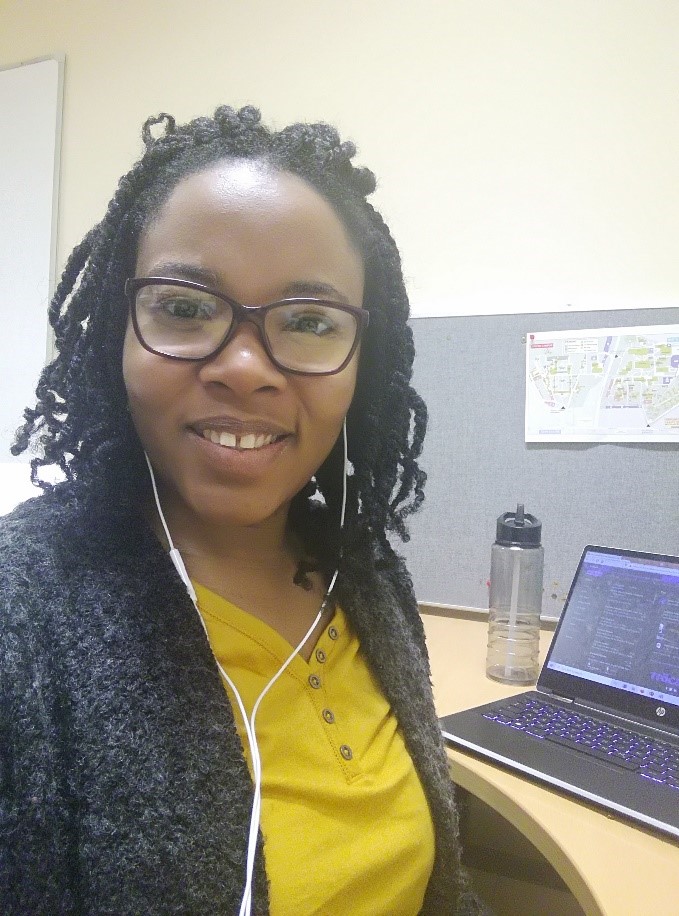
 International Institute for Human Rights, Environment and Development (INHURED), Nepal.
International Institute for Human Rights, Environment and Development (INHURED), Nepal.
Vom 1. März bis zum 15. Mai 2023 hatte ich das Vergnügen, ein Praktikum beim International Institute for Human Rights, Environment and Development (INHURED) in Nepal zu absolvieren.
Während meiner Zeit bei INHURED habe ich mich gleich zu Beginn an zwei Projekten beteiligt, die schwerpunktmäßig mit Interessenvertretung und Menschenrechten zu tun hatten. Das erste Projekt trug den Namen Human Rights Lifeline. Ziel dieses Projekts war es, Menschen zu helfen, deren Menschenrechte verletzt wurden. Dieses Projekt ist bedeutsam für die sozial Schwächsten in der nepalesischen Gesellschaft, wie z. B. Flüchtlinge, denen nicht zugehört wird. Das andere Projekt war eine rechtliche Überprüfung der Flüchtlingsgesetze in Nepal in der Hoffnung, dass sie geändert werden können. Ich nahm an Beratungstreffen mit verschiedenen Personen teil, in deren Macht es lag, diese Gesetze zu ändern, darunter auch Mitglieder des Parlaments. Nepal hat kein nationales Flüchtlingsgesetz und ist keine Vertragspartei der Flüchtlingskonvention von 1951. Es ist somit nicht verpflichtet, die in dem internationalen Instrument für Flüchtlinge festgelegten Verfahren einzuhalten. Dies hat zur Folge, dass Flüchtlinge es in Nepal schwer haben. Erst kürzlich wurde in Nepal ein bhutanischer Flüchtlingsbetrug bekannt. Bei diesem Betrug wurden bhutanische Flüchtlinge, die in die USA auswandern wollten, von hochrangigen Politikern betrogen. Dieser Vorfall zeigt, wie wichtig diese beiden Projekte sind.
Die andere Aufgabe, die mir anvertraut wurde, bestand darin, Geld für eine Gruppe von Flüchtlingen zu sammeln, die aus Myanmar kamen. Diese Flüchtlinge leben seit 2012 in Nepal, wo sie von der nepalesischen Regierung als "illegale Einwanderer" eingestuft werden. Dieser Status bedeutet, dass sie kein Recht haben, zu arbeiten oder zu reisen, und dass ihnen viele andere Einschränkungen auferlegt werden. Diese rechtlichen Einschränkungen erlauben es der Rohingya-Gemeinschaft nicht, für sich selbst zu sorgen. Die Rohingya-Familien im Sunakoti-Lager in Kathmandu benötigen derzeit Unterstützung. Die gesammelten Gelder wurden für das Rohmaterial (insbesondere Blech) verwendet, das für den Bau von Behelfshäusern benötigt wird. Der Bambus war bereits gekauft und aufgestellt worden, aber es mussten noch Bleche besorgt werden, um die Häuser fertigzustellen. Mein ursprüngliches Ziel waren 500 Euro, aber dank der vielen Spenden, die ich von Spendern auf Gofundme erhielt, habe ich mehr als 700 Euro sammeln können. Dieses Geld hat den Flüchtlingen sehr geholfen, und INHURED hat die Bleche und einige Lebensmittel für das Lager erhalten.
Dieses Praktikum hat mir bewusstgemacht, was ich im ISS gelernt habe und wie wichtig die Themen sind, die wir im Unterricht behandelten. Da ich aus Irland komme, hatte ich viele dieser drastischen Bedingungen, die ich während meiner Zeit in Nepal erlebte, noch nie gesehen. Ich musste meinen Kollegen immer Fragen stellen, wenn ich etwas sah, das ich als auffällig empfand. Dieses Praktikum hat mir ein besseres Verständnis dafür vermittelt, was Nichtregierungsorganisationen tun. Sie erhalten ihre Grundfinanzierung für die verschiedenen Projekte, die sie durchführen, von Spendern und geben Hoffnung denjenigen, die sich auf sie verlassen. Das konnte ich sogar in dem Flüchtlingslager sehen, das ich besuchte. Das Lager befindet sich in einer ländlichen Gegend, die sehr isoliert ist, und wenn man jemanden in das Lager kommen sieht, gibt das den Flüchtlingen einen gewissen Optimismus.
Meine Organisation war sehr offen und vertraute mir viele Aufgaben an. Was mein Praktikum jedoch zu etwas Besonderem machte, war die Beziehung und die fürsorgliche Haltung, die diese Organisation mir entgegenbrachte. Das ist das erste Mal, dass ich so etwas in einem Job erlebt habe. Ich bin dankbar, dass meine Kollegen und ich zu einer Familie wurden und füreinander sorgten. Ich habe es genossen, mit dieser Organisation zu arbeiten und war sehr traurig, alle zu verlassen. Es hat sogar eine Weile gedauert, bis ich mich an das Leben in Europa wieder gewöhnt hatte.
Das gesamte INHURED Team und bisherige Mitarbeiter auf Übernachtungsreise
Ich und meine Kollegen bei einem para-legalen Orientierungsprogramm für tibetische Flüchtlinge
Sammeln von Blechtafeln
Flüchtlingslager Rohingya
Abwurf der Blechtafeln im Flüchtlingslager
Legal review Meeting INHURED had
Ich und meine Kolleginnen und Kollegen bei den Sitzungen zur Überprüfung der Menschenrechtslage
Erfahrungsberichte von Dozent:innen und Mitarbeiter:innen:
 Dozentin plant Erasmus-Projekt mit Cernica
Dozentin plant Erasmus-Projekt mit Cernica
Vom 19. bis 22. Juli 2022 war Dr. Friedegard Föltz (Bildmitte), Dozentin am Fachbereich Sozialwesen der ThHF, an der Universitatae Adventus in Cernica, Rumänien, zu Gast, um die Partnerhochschule und die Mitarbeitenden kennenzulernen, sich über die Strukturen des pädagogischen Fachbereichs zu informieren und ein gemeinsames Projekt zu planen.
Eine Neuerung der Erasmus-Programmgeneration 2021–2027 stellen die sogenannten Blended-Intensive-Programmes (BIP) dar. Dadurch sollen neue Lern- und Lehrsettings gefördert und die Möglichkeiten einer Online-Kooperation genutzt werden. BIP zielen auf die Entwicklung kurzer, intensiver und gemeinsamer Curricula und Aktivitäten. Studierende und Hochschulmitarbeitende haben so die Möglichkeit, an einer kurzen physischen Gruppenmobilität, kombiniert mit einer virtuellen Phase, teilzunehmen. Für das Studienjahr 2022/2023 entsteht nun ein solches Curriculum im Bereich Sozialwesen, das es den Studierenden ermöglicht, drei Credits zu erarbeiten und durch einen Besuch vor Ort auch die Geschichte und kulturellen Traditionen des Landes sowie die akademischen Strukturen der Hochschule kennenzulernen.
Daneben gab es ein kulturelles Rahmenprogramm, das auf eindrucksvolle Weise Land und Leute näherbrachte. Bukarests riesiges Parlamentsgebäude, der Altstadtkern, die Kirchen und Klöster in der Stadt sowie ein Museumsdorf unter freiem Himmel gaben unvergleichliche Eindrücke in die wechselvolle Geschichte und Kultur des Landes.
Foto: privat
 Coronazeit
Coronazeit
Auf dem Bild sieht man meinen Ausblick am Flughafen London Stansted nachts um 2.30 Uhr, was ich auf Instagram gepostet hatte. „Zu schön, um wahr zu sein“ war dabei eher ironisch gemeint!
Die Corona-Krise hat sich drastisch und vor allem sehr schnell auf mein Praktikum ausgewirkt. Schon im Januar wurde man durch den Ausbruch der Krankheit in den Medien auf dem neusten Stand gehalten, aber alles schien für alle sehr weit entfernt. Durch mein Praktikum an einer Forschungseinrichtung, wo viele Biologen arbeiten, wurde das Thema fast Tag für Tag diskutiert, aber niemand hatte damit gerechnet, dass sich innerhalb von 4 Wochen alles drastisch ändern wird. Am Wochenende vor meiner Abreise hatte ich Besuch von Freunden aus Deutschland und wir reisten nach London. Das Thema spitzte sich immer mehr zu, weswegen ich die Hygienemaßnahmen schon für sehr wichtig gehalten habe. Meine Freunde waren zu dem Zeitpunkt noch sehr entspannt und ich hatte das Gefühl, dass ich schon panisch werde. Aber auch in meinem Umfeld am Institut wurden viele Sorgen geäußert, aufgrund mangelnder Kapazitäten des Gesundheits-systems in England und des „Herden-Immunität“-Ziels von Boris Johnson. Durch die London-Reise hatte ich beschlossen aus Sicherheit eine Woche zu Hause zu bleiben. Ich war sehr viel in öffentlichen Verkehrsmitteln unterwegs und hatte in einem 9-Bettzimmer im Hostel übernachtet. Am Dienstag hatte ich mit Frau Wittkamp telefoniert, da ich mit der immer beängstigender werdenden Situation überfordert war. Allerdings entschied ich mich, in England zu bleiben. Am darauffolgenden Tag bekam das Forschungsinstitut eine E-Mail vom Vize-Kanzler der Universität, wo alle internationalen Studenten gebeten werden, so schnell wie möglich die Rückreise in das jeweilige Heimatland anzutreten. Ich war komplett überfordert, da ich eigentlich einen Tag vorher froh über meine Entscheidung war. Ich hatte noch mit meinem Gruppenleiter, meiner Betreuerin und der deutschen Botschaft in England Kontakt und alle meinten, dass man so schnell wie möglich nach Hause fliegen solle. Einen Tag später war ein günstiger Flug vorhanden, den ich mir dann auch gebucht hatte. Jetzt bin ich traurigerweise seit 12 Tagen wieder in Deutschland, aber bin trotzdem überzeugt, dass ich die richtige Entscheidung getroffen habe, das Land wieder zu verlassen.
Name: Jolina Marx
Studiengang: Master Biologie
Zielland: Großbritannien
Name der Praktikumseinrichtung: Sainsbury Laboratory University of Cambridge
Derzeitiger Status: vorzeitiger Abbruch (?)
 CSW-Mitarbeiter in Irland
CSW-Mitarbeiter in Irland
Vom 1.-6. März, noch rechtzeitig, bevor eine andere Zeit durch die COVID-19 Situation über uns hereinbrach, konnten drei Kolleg*innen des Fachbereichs Christliches Sozialwesen und Studiengangsleiterinnen der Studiengänge M.A. International Social Sciences und B.A. Soziale Arbeit eine Staff-Mobilitätsphase mit Erasmus+ an der Maynooth University in Irland durchführen.
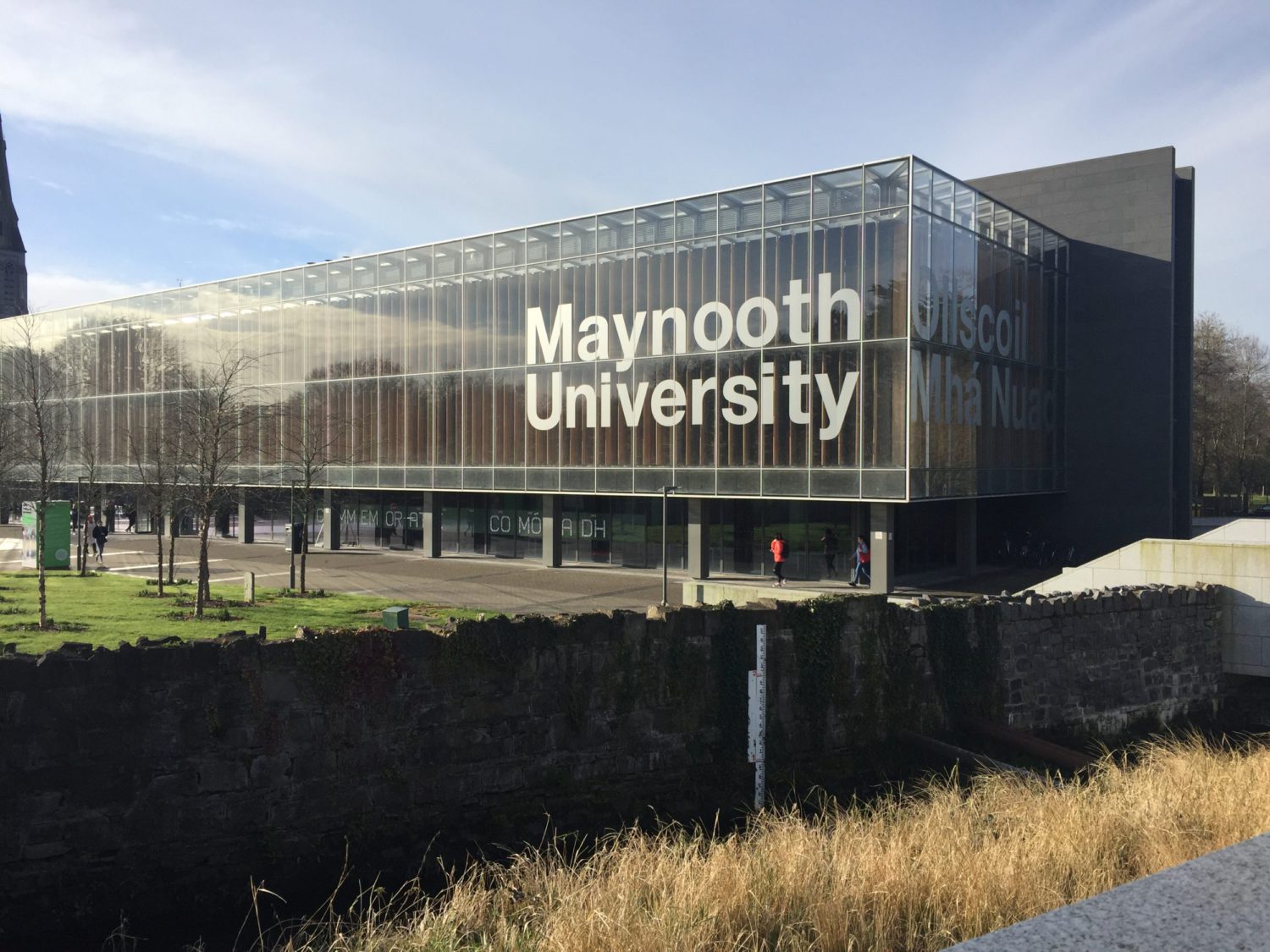
So war die Woche vollgepackt mit Aktivitäten und neuen Eindrücken. Wir wurden herzlich willkommen geheißen und es gab einen vollen Terminkalender, der außer dem Workshop verschiedene Treffen mit Dozent*innen unterschiedlicher Funktions- und Verantwortungsbereiche vorsah. Die Beziehungen und der Austausch konnten abends bei einem Pubbesuch weiter vertieft werden.
Der Workshop über E-Learning führte uns einmal mehr die Relevanz der Weiterentwicklung der Digitalisierung im Hochschulbereich plastisch vor Augen und motivierte uns, dort mehr Aufmerksamkeit und Aktivitäten zu investieren. Diese Notwendigkeit ergab sich dann auch sofort nach unserer Rückkehr aufgrund der sich anbahnenden Situation durch COVID-19. Dieser Workshop war eine ideale Vorlage für unsere momentanen Bemühungen und Herausforderungen, die Lehre unter diesen Umständen aufrechtzuerhalten.
Wir haben ein besseres Verständnis des spezifischen Rahmens dieser Studiengänge an der Maynooth University bekommen und werden weiter die Möglichkeiten zur Zusammenarbeit in Bezug auf Curricula, Möglichkeiten des Austausches für Studierende, Summerschools oder Praktika ausloten. Ein gemeinsamer Workshop zum Thema „Teaching Development Studies in the Global North“ ist noch für dieses Jahr in Friedensau geplant. Wir freuen uns dafür unser Kolleg*innen aus Maynooth in Friedensau zu empfangen.
 In Brüssel
In Brüssel
Das Bild habe ich am ersten Abend in Brüssel aufgenommen. Am linken Bildrand erkennt man einige Autos, die zu dem Zeitpunkt noch gefahren sind. An dem Abend war ich noch in der Stadt, wo viele Menschen in den Bars und Restaurants waren. Man musste Glück haben ein Platz zu bekommen. Die ersten zwei Wochen meines Praktikums habe ich im Büro verbracht und war auf Veranstaltungen. Alles in allem, hatte ich viel mit Menschen zu tun. Dann kam die Nachricht, dass wir keine Außentermine wahrnehmen sollen. Die Maßnahme würde innerhalb von zwei-drei Tagen verschärft und alle Mitarbeiter mussten ins Homeoffice. In der selben Woche hat Belgien die Grenzen geschlossen und ich war froh, dass ich zwei Tag vor dem Beschluss nach Hause gefahren bin. Da der Coronavirus in Belgien lange noch nicht überwunden ist und die Maßnahmen verlängert wurde, musste ich leider die Entscheidung treffen mein Praktikum abzubrechen. So kann man sehen, dass sich eine Situation innerhalb von zwei Wochen total ändern kann. Das Leben steck voller Überraschungen und wir alle müssen jetzt Solidarität und Optimismus zeigen.
Amanda Zieseniss
Hochschule Magdeburg-Stendal, Betriebswirtschaftslehre
Praktikum bei der Vertretung des Landes Sachsen-Anhalt bei der EU in Brüssel, Belgien
 In Frankreich
In Frankreich
Ich habe als Fremdsprachenassistentin in Frankreich gearbeitet und musste mein Praktikum frühzeitig vor Ort beenden, da ab dem 16.03. alle Schulen geschlossen wurden. An meinem letzten Tag haben die Schülerinnen und Schüler mir als Abschiedsgeschenk Briefe und Pralinen überreicht, die Briefe hängen nun eingerahmt über meinem Schreibtisch und erinnern mich immer daran,warum ich Lehrerin werden möchte. Ich konnte vorerst nichts weiter tun, da auch die Lehrerinnen nicht mit der Situation richtig umzugehen wussten. Heute nehme ich ab und an Audiodateien für meine Lehrerinnen und deren Schülerinnen und Schüler auf, um sie beim Lernen Zuhause zu unterstützen.
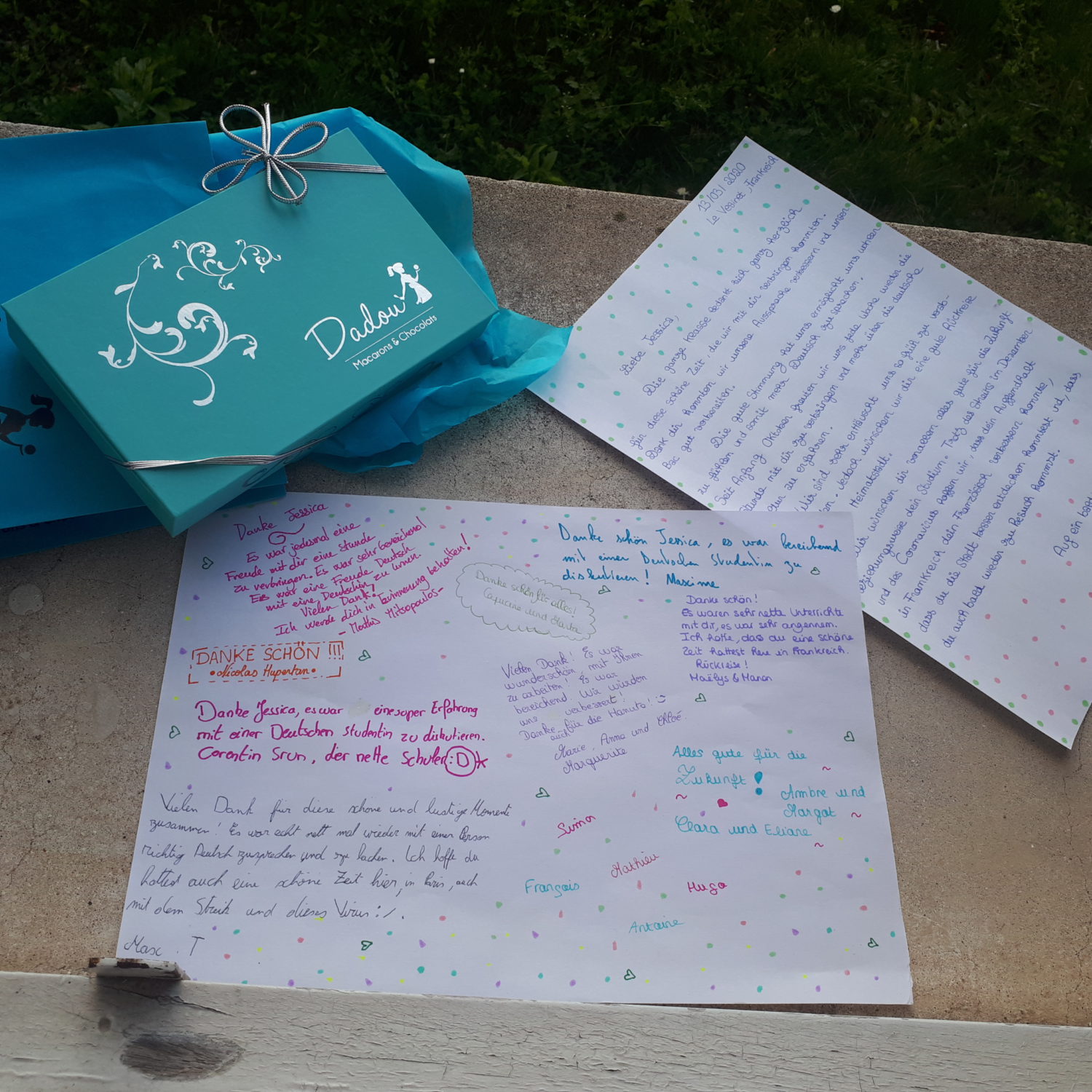
 Home-office in Prag
Home-office in Prag
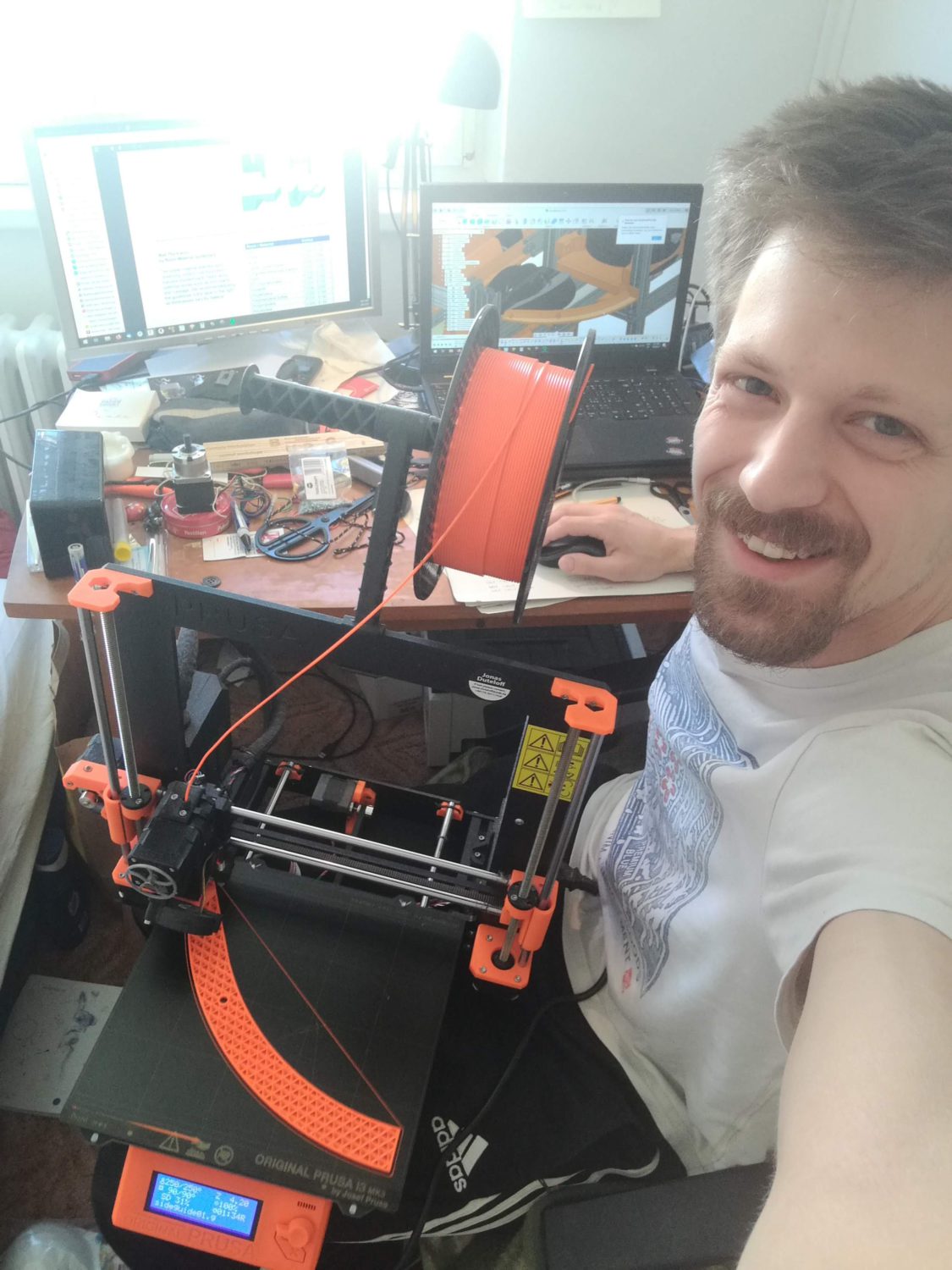
dav
Seit September 2019 absolviere ich ein einjähriges Praktikum beim Open-Source 3D-Drucker-Pionier Prusa in Prag. Meine Hauptaufgabe besteht in der Entwicklung und Umsetzung von Automatisierungstools für die Filamentproduktion. Den größten Teil dieser Arbeit kann ich seit Anfang März im Homeoffice erledigen und dank des 3D-Druckers die konstruierten Teile auch herstellen. Ab und zu fahre ich dann doch mit Mundschutz und Fahrrad auf Arbeit, um die Teile zu verbauen und zu testen.
Jonas Duteloff, Burg Giebichenstein Kunsthochschule Halle, B.A. Industriedesign, Tschechien, Prusa Polymers a.s., Praktikum hauptsächlich im Homeoffice in Prag
 Unterbrochenes Praktikum
Unterbrochenes Praktikum
Wie hat sich Corona auf das Praktikum ausgewirkt? Mein Praktikum bestand aus einem Präsenztag im Praktikumsbetrieb und einer Woche Homeoffice. Leider wurde das Praktikum aufgrund des Coronavirus unterbrochen und ich trat eine Woche später die Rückreise nach Deutschland an. Zurzeit hoffe ich auf die Wiederaufnahme des Praktikums und stehe dazu im Kontakt mit dem CSA.
Name: Antonia Lange
Hochschule: Hochschule Anhalt, Standort Bernburg
Studiengang: Naturschutz und Landschaftsplanung
Zielland: Frankreich
Name der Praktikumseinrichtung: Conservatoire des Sites Alsaciens
Derzeitiger Status: Praktikum unterbrochen, nach Deutschland zurückgekehrt
Erasmus-Praktika-Büro
Theologische Hochschule Friedensau
Otto-Lüpke-Haus, Raum 306 A/B
An der Ihle 5 A
D-39291 Möckern-Friedensau
E-Mail:
Ansprechpartnerin:
Dr. phil. Friedegard Föltz
Telefon: +49 (0) 3921 916-189
Fax: +49 (0) 3921 916-201
E-Mail:
Büro für Akademische und Studentische Angelegenheiten:
Jochen Streit
E-Mail:

ERASMUS-Code: D MAGDEBU05
ECHE: 272694-EPP-1-2019-1-DE-EPPKA1-ECHE
ERASMUS+ Charta 2014-2020
ERASMUS+ Charta 2021-2027
ERASMUS+ Policy Statement
